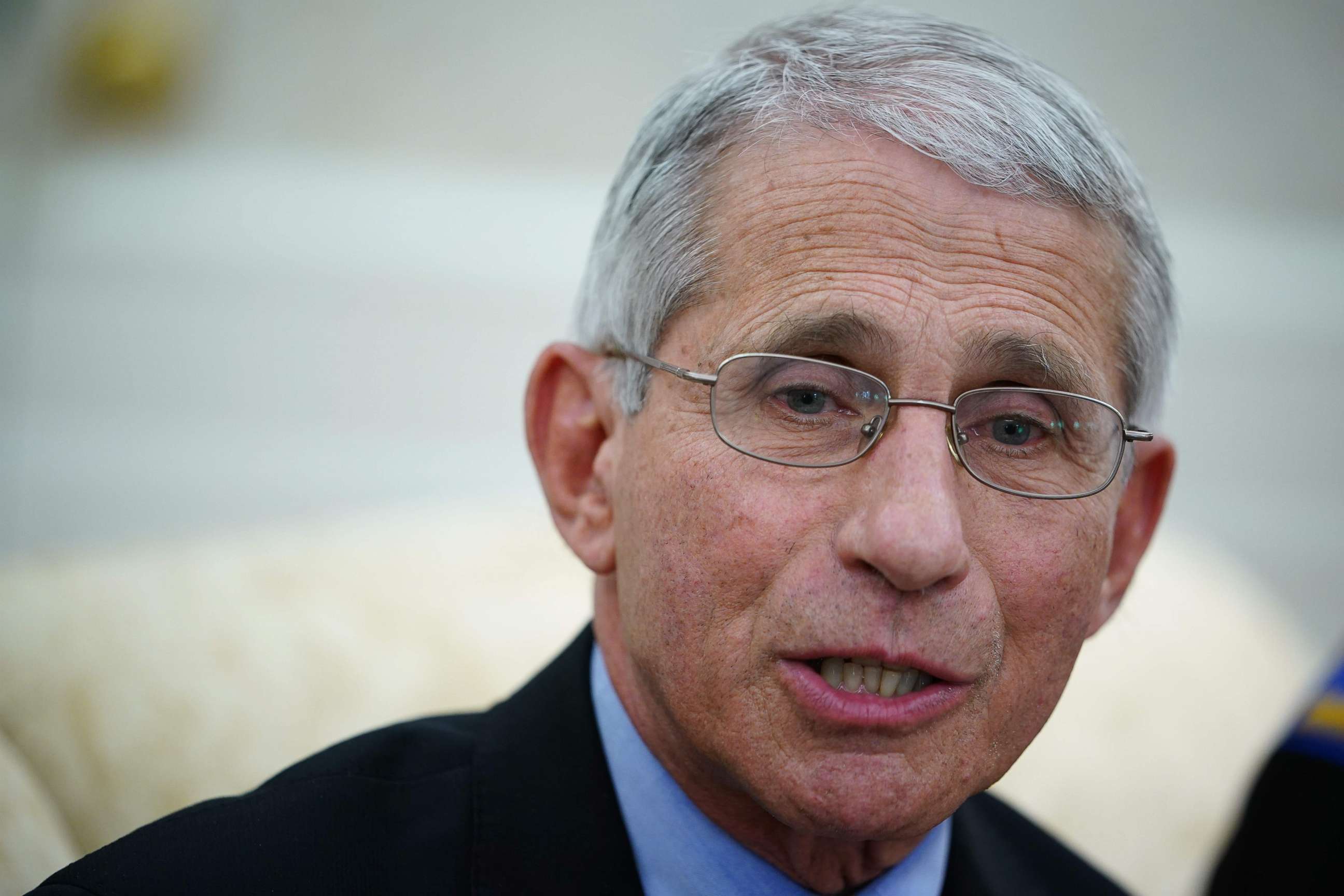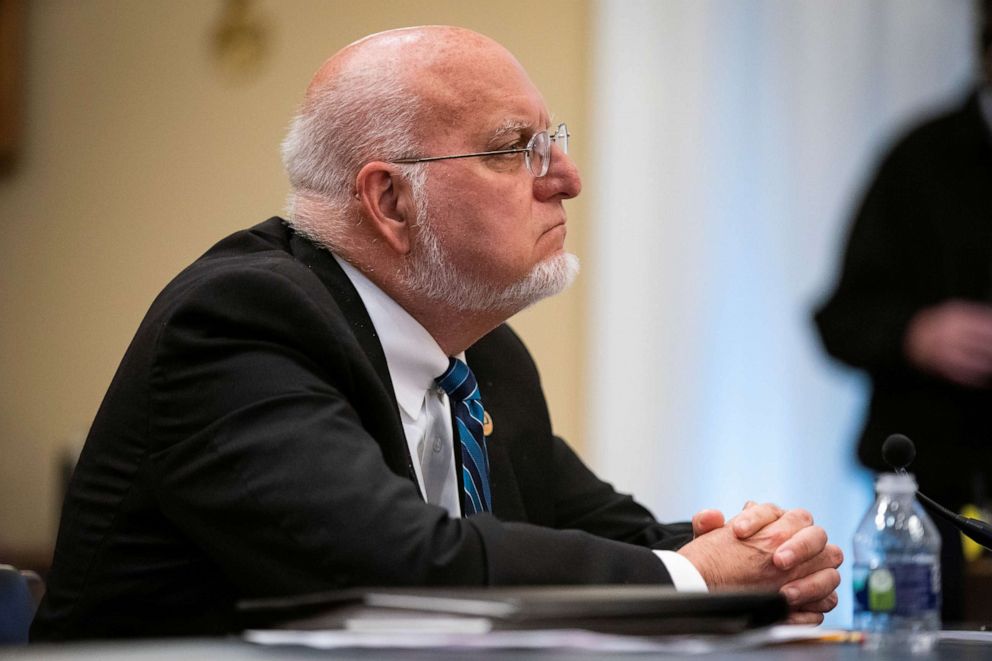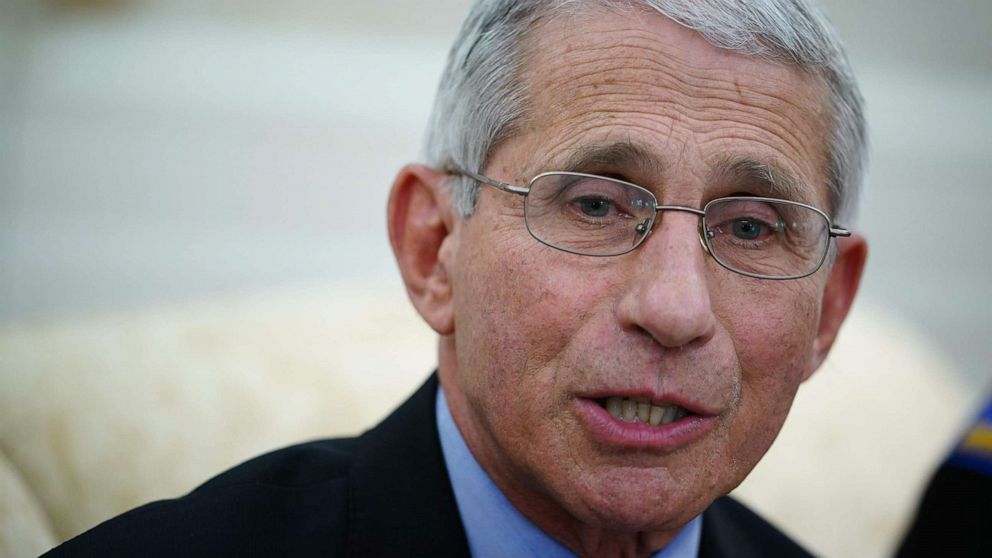3 questions to watch for as Fauci, Redfield testify before House panel
As President Donald Trump heads to an Arizona megachurch to rally supporters, Anthony Fauci and other top health officials will be on Capitol Hill on Tuesday for the first time in weeks to answer questions on COVID-19 testing and treatments.
Their testimony comes on the heels of several new developments regarding the virus. In this month alone, the "gamechanger" drug favored by Trump to treat the virus -- hydroxychloroquine -- turned out to be a bust; new hot spots emerged as many residents have been unable -- or unwilling -- to follow social distancing guidelines; and protests and campaign rallies have become the new normal as racial tensions flare.
For their part, Fauci and the other scientists are expected to defend their recommendations of masks and social distancing while trying to sidestep any direct challenges to Trump's insistence that the country is ready to reopen.
"The emergence and rapid spread of COVID-19 confirms that an infectious disease threat anywhere is a threat to Americans everywhere, including here at home," states an administration memo sent to the House committee.
But here are three questions to watch for as panel members grill Fauci, director of the National Institute for Allergy and Infectious Diseases; Robert Redfield, director of the Center for Disease Control and Protection; Stephen Hahn, head of the U.S. Food and Drug Administration; and Adm. Brett Giroir, the top Health and Human Services official in charge of testing efforts.
Is a rise in cases caused by more testing?
Trump prompted some head scratching this weekend when he told supporters at his rally in Tulsa, Oklahoma, that he urged his staff to slow down testing. Health officials have scrambled this year to increase testing so people can self-quarantine and not infect others.

"When you do testing to that extent, you're going to find more people, you're going to find more cases. So I said to my people, 'Slow the testing down, please,'" Trump said.
His aides later suggested he was only joking. But when asked Monday what he meant, the president said "I think we're way ahead of ourselves, if you want to know the truth."
His comments point to a larger point on whether some states are just becoming more aware of cases through testing, or if the virus is spreading faster because businesses are reopening.
Early on during the pandemic -- when testing supplies were scarce -- a sudden expansion of testing capacity was often blamed by local health experts for a sudden spike in case numbers.
But testing has increased dramatically in recent weeks. Vice President Mike Pence told state governors on a call Monday that testing numbers are up to 500,000 per day now and it's less clear whether testing and rising case numbers are closely linked.
Has anyone told Trump not to hold rallies?
The hearing will no doubt offer an unusual split screen. Americans will be hearing from Fauci and Redfield on the merits of social distancing and masks as Trump is scheduled to visit a megachurch that seats thousands, where he's unlikely to wear a mask.
Fauci has been clear that his advice on campaign rallies is the same as protests -- any crowd should be avoided and masks are needed to contain the spread of the virus. Redfield, a political appointee reluctant to call out the president directly, has given similar advice.
But one question that remains is to what extent Fauci and Redfield may have pushed back and if they ever advised the White House to call off these crowded events to protect people from getting sick.

For his part, Trump has been defiant.
"I'm not worried about it, no, not at all. We watch it. We're very careful," he said Monday in an interview with Scripps for its local TV stations.
Hydroxychloroquine is a bust. Remdesivir is running low. Now what?
This weekend, the National Institutes of Health announced it was ending its clinical trial of hydroxychloroquine -- the drug Trump touted repeatedly as a "gamechanger" -- stating it was "very unlikely to be beneficial to hospitalized patients with COVID-19."
The announcement followed a decision by the FDA to withdraw its emergency use authorization of the drug -- a decision that meant it would no longer be stockpiled by the federal government and distributed to the states as an option for treatment.
The question now becomes what else might be on the horizon. A vaccine isn't expected until 2021 and there's only one drug -- remdesivir -- that has shown modest improvements in patients.
Earlier this month, the Trump administration announced its supply of remdesivir will be almost entirely exhausted by the end of the month. The Department of Health and Human Services says it remains in discussion with drug-maker Gilead to obtain more.




